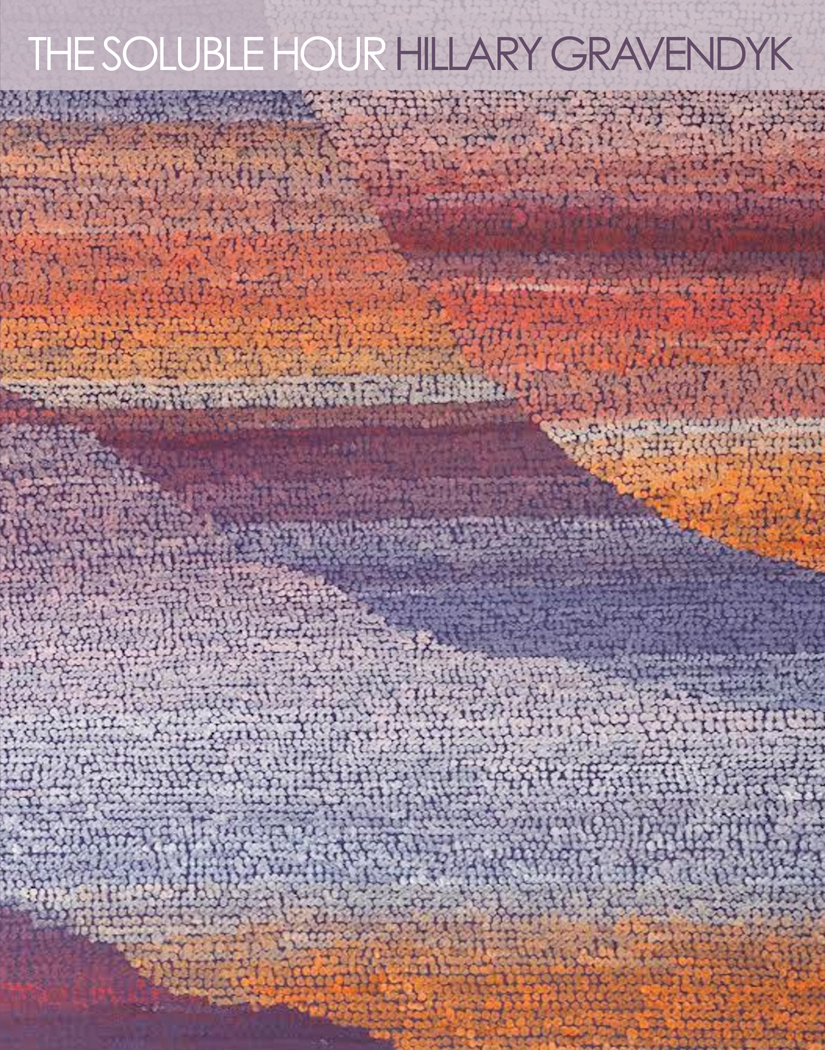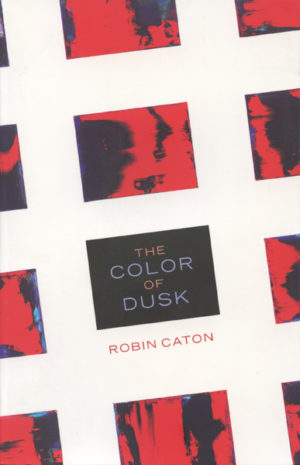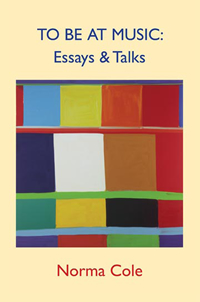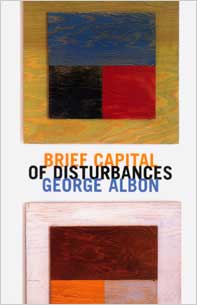Description
Edited and with an introduction by Cynthia Arrieu-King
In Hillary Gravendyk’s The Soluble Hour, the speaker sings with visionary passion how the beloved and dear ones will soon be without her and laments for their imminent grief. But being in extremis pulls the voice towards testimony of unquestioned love, a recollection of landscapes Californian and otherwise, and previous selves. The poet wields her deep solitude as the measure of truth and conviction, the self that accepts its own impermanence.
The lyric here is both cry and love song. These deeply felt and precise poems cry for the beloved, knowing the beloved will soon be bereft: “I understand transformation better than death, though / I practice for it every night, with you.” Transformation in language is metaphor, the magical force that moves substance to spirit. Again and again Gravendyk enacts this magic, a gift for those who will grieve, which is all of us: “I fluttered in your chest, and was remembered.”
Julie Carr
What happens to the lyric voice when the air pushed from lungs through throat and mouth becomes more precious as it becomes more faint? These poems are not restrained by the illness of a poet taken from us too soon, but rather are energized by an abiding interest in the special kind of presence, of the embodied phenomenology that illness makes possible. To state this as Gravendyk’s philosophical orientation is to state a particular kind of courage, one that discovers curiosity in tragedy and renders etherial the kind of heat and density produced under the most crushing of pressures. In delicate lyrics then, these poems synthesize defiance and resignation, building toward intensities that obtain clarity at the most precarious of moments.
Joseph Jeon
In Hillary Gravendyk’s astonishing, posthumously published book of metamorphoses, both body and language enter into the cycles of transformation. The reader follows her keen vision into the strange and unsettling territories these poems traverse, and like some latter-day Keats she teaches us both “the downfall” and “the jubilation” inherent in the fact that we are “forever bound to our bodies,” “which flower and fail.” These are poems of relation, the I tenderly addressing a you, and they were in their composition already aware of the unfathomable distance they would ultimately have to cross. “I was a long time away,” Gravendyk writes. These final poems return her to us anew, and will bear her indelible vision far into the future.
Jessica Fisher
About the Author
Hillary Anne Gravendyk was born in Manhattan Beach, California on March 1, 1979, and grew up in Snoqualmie Valley, Washington State, in the town of Carnation. She attended Tulane and the University of Washington and went on to get a doctorate in English Literature from the University of California, Berkeley. In 2008, her chapbook The Naturalist came out from Achiote Press and in 2010, her book Harm, published by Omnidawn, was a finalist for the California Writer’s Exchange Award. In 2009, she was hired to teach 20th Century poetry at Pomona College in Claremont, California. After moving to Oakland in 2003 with her husband Benjamin Burrill, Hillary lived out most of her adult life in the San Francisco Bay Area and Claremont.
Cynthia Arrieu-King is associate professor of creative writing at Stockton University. Her poetry volumes include People are Tiny in Paintings of China from Octopus Books, Manifest from Switchback Books, and Unlikely Conditions from 1913 Press, written with Hillary Gravendyk.
Gravendyk’s quiet lyrics are full of you- and I-ness, like the space between two bodies who have lately embraced, and who are glimpsed in the moment before contact is lost, or before it can be found again. These poems, unedited by their compilers, are about nothing but love seen from the remove of a second that threatens to yawn into longer: “You feed me need and I open my mouth to receive it.” Who has not gratefully swallowed lack, given by the beloved?
Reading The Soluble Hour is to experience the craft of a writer whose precision presses each poem into our palm like a precious stone. Gravendyk’s work is highlighted by the meticulousness of her language, every word a careful consideration, a weight that lingers like a pressure or a tug to the chest, all the while recognizing that nothing is sacred, positioning her words on the page, each line carefully arranged like an object in a shadowbox . . . For me, her lines evoke the sculptural creations of Joseph Cornell, and like Cornell she displays an incredible talent for collecting disparate objects and shaping gorgeous images, her lines brimming with striking contour and music.
CominG baCk
I was a long time away.
The summer sky rinsed with clouds.
Confetti rain. No one saying goodbye, no
one waving from the deck of an ocean
liner. Walking away like going down
the aisle. A perfumed avenue
of blown flowers. Anticipation streaming
like a banner across every face. Your hand
a prediction; my hand
a delectation. Raspberry-lipped summer,
I gave you up like a loose promise. Never chose
to come back. Something like a hand
darkening my chest. And visitations, rosy
with care. Bound by a heavy love, I came to stay.
The knuckle of hard belief worried to a smooth
finish. House with its keyhole architecture
of small spaces held apart. I tampered
with a chambered heart, I stuffed my mouth
with opal. I glistened at the rim of any hour,
I turned my fingers on a burning lathe, pressed
my skin into the sinuous heat. I
was a long time away.





